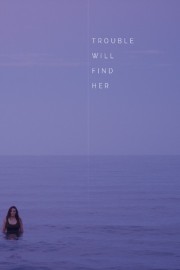Trouble Will Find Her (Short)
Nickolas Duarte focuses his films in on the heart. The heart of a situation, the heart of a character, the heart of a concept, the heart of what he wants to show us. “Jay,” “Joke,” “Sultan of the Sea,” “Sea Change,” “Triplet,” “Fish Hook,” “What You Need,” and now, “Trouble Will Find Her,” are all about setting up a piece of cinema that will take us straight to the heart of whatever it is about. Some are better than others, some are unusual, and some are undeniably powerful, but all are about taking us deep inside, and showing us about the lives on-screen. This is now the 8th film Duarte has shown me in five years, and there’s a reason each, new film has become a film to look forward to, and it’s because his stories may be short, but they are quite thoughtful and emotional explorations. (Except for “Joke,” which is a delightful deconstruction of humor.)
“Trouble Will Find Her” is about a woman, Julia, who has recently moved to Toronto. We don’t know where from, but we gather, from voice messages we hear her listening to, and from phone calls she has with people, that she has abandoned a life she had that involved love, kids and an affair for something else. We don’t really find out why she left (although there are hints of domestic violence), or what she left to do, which admittedly makes this a tricky film from an emotional standpoint, but Julia feels content with her choice. The kids belonged to her husband (she wasn’t their biological mother), and the affair feels like a reason she would have stayed, but was, evidently, one she could walk away from, although we see her in bed with another man early on. Like “Sultan of the Sea” and “What You Need,” this is more of a tone poem than a straightforward story, and this one is about a woman who makes a choice. We want to understand it, but do not know what to think of it. When he shared the film with fans via newsletter, he described it thusly: “This is a performance-driven piece with an editing and visual style that mirrors the protagonist’s journey of perseverance, shame, and the subtle (and not-so-subtle) double standards women face.” That puts you in a good mindset to watch the film, as we must put ourselves in the mindset of Julia, to think about things from her perspective, and see how we react. As with all of Duarte’s films, it can be a challenge, but it’s definitely one worth taking.










